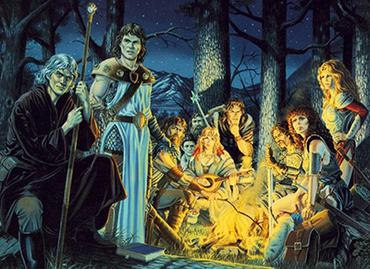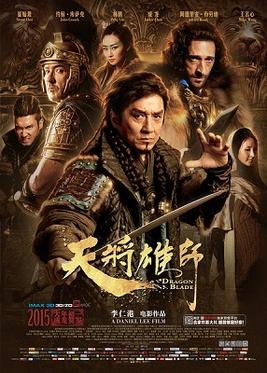- Playing B1 In Search of the Unknown!
B1 In Search of the Unknown is both the original teaching module and is one of the most widely played RPG adventures of all time, being included in a number of printings of both the Holmes and Moldvay Basic D&D Sets. Written for introductory DMs and players, B1 is a traditional dungeon crawl filled with tricks and traps to spur the minds of beginners. A number of the rooms are deliberately left blank by Mike Carr, the author, to encourage DMs to think about dungeon design. Whether this DYI approach is a feature or bug depends on your point of view.
While I've owned B1 for years, this was my first opportunity to actually play the module. As an exploration of a dangerous and weird locale, B1 is fun and still a challenge even for veteran players on the lookout for trouble. Also, while not a meat grinder per se, a few of the PCs still died in the name of loot!
Old School!
- Playing with Frank Mentzer!
I started with the Mentzer Basic D&D Set and so it was awesome for me to actually play in a game with Messr Mentzer himself as DM. He was kind, warm and gracious but he did, however, put a quick end to the hero worship stuff ("Just call me Frank").
The Mentzer Basic D&D Set is even more clearly written and even easier to understand than the Holmes and Moldvay Basic D&D Sets, making it ideal for younger audiences, such as myself back in the day. Consequently, the Mentzer Basic D&D Set is still one of the best introductions to role-playing. In fact, there was a player at our game who'd never done any role-playing before and Frank was able to get her up to speed in a flash!
I told Frank I spent quite of bit of time in the intro adventure to his Basic Set trying to save poor Aleena the Cleric, to no avail. He replied that it was a deliberate design decision to bring home the point that 1) adventuring is dangerous business and 2) that RPGs are fantasy (not real life).
The adventure itself was a hugely fun time, a riff on L. Frank Baum's Oz stories (not just the Wizard of Oz, but the later tales as well). Frank also filled the session with many great stories about the early games of gaming and of TSR!
So, if you ever find yourself in Massachusetts at the end of February and have the urge to game, you should make time to come to TotalCon! After 31 years, they are still going strong. This is a well organized and run convention, with friendly and helpful staff, and it's always a blast to attend. Plus, it's relatively inexpensive, so you get a lot for your $$.
Subject to unforeseen circumstances, I'll be there again next year!


.JPG/729px-Frank_Mentzer_-_Lucca_Comics_%26_Games_2014_(cropped).JPG)
















